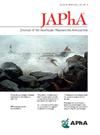药师主导的复杂干预的实施评估:ASPIRE随机对照试验中嵌入的混合方法分析。
IF 2.5
4区 医学
Q3 PHARMACOLOGY & PHARMACY
Journal of the American Pharmacists Association
Pub Date : 2025-09-22
DOI:10.1016/j.japh.2025.102928
引用次数: 0
摘要
背景:多病多药的老年患者发生药物相关伤害的风险较高。包括药物调节和药物审查在内的复杂干预措施可以改善结果,尽管由于最近的试验实施失败,它们在老年患者中的有效性尚不清楚。ASPIRE项目评估了一项复杂的干预措施,旨在减少老年患者计划外的医院复诊,同时最大限度地实施干预措施。目的:通过描述实施策略、评估逼真度、可行性和可接受性以及记录ASPIRE干预的过程结果来进行实施评估。方法:采用收敛平行混合方法设计,定量数据来自所有干预患者,定性数据来自半结构化访谈和一个焦点小组。实施战略是根据实施变革的专家建议(ERIC)指南设计的。对所有干预患者的每个干预成分的保真度进行定量测量,使用80%的阈值来定义成功实施。使用Flottorp的上下文分析框架对可行性和可接受性进行定性评估。描述性地报告干预持续时间和过程结果。结果:ASPIRE试验纳入了415名干预参与者,年龄为85.9(±5.78)岁。复杂的干预措施成功实施,87%的患者接受了所有干预措施,大多数利益相关者认为这是可行和可接受的。对保真度、可行性和可接受性影响最大的成功执行的关键因素包括充足的时间和人力分配、额外的培训、建立的工作关系、共享的信息系统和详细的干预指南。出院回家和去养老院的患者干预时间中位数分别为77.3分钟(四分位间距65.8-93.5)和64.5分钟(四分位间距54.2-78.8)。结论:ASPIRE干预成功实施,被利益相关者认为是可行和可接受的,突出了其改善老年患者护理的潜力。高水平的执行为进一步评价其有效性提供了坚实的基础。本文章由计算机程序翻译,如有差异,请以英文原文为准。
Implementation evaluation of a pharmacist-led complex intervention: A mixed-methods analysis embedded within the ASPIRE randomized controlled trial
Background
Geriatric patients with multimorbidity and polypharmacy are at high risk for medication-related harm. Complex interventions including medication reconciliation and medication review can improve outcomes, though their effectiveness in older patients remains unclear due to implementation failure in recent trials. The ASPIRE (The effect of a trAnSitional Pharmacist Intervention in geRiatric inpatients on hospital visits after dischargE) project evaluates a complex intervention aimed at reducing unplanned hospital revisits in geriatric patients while simultaneously maximizing intervention implementation.
Objectives
To perform an implementation evaluation by describing the implementation strategies, evaluating fidelity, feasibility, and acceptability and documenting process outcomes of the ASPIRE intervention.
Methods
A convergent parallel mixed-methods design was used with quantitative data from all intervention patients and qualitative data from semi-structured interviews and one focus group. The implementation strategies were designed based on the Expert Recommendations for Implementing Change guidelines. Fidelity to each intervention component was quantitatively measured for all intervention patients, using an 80% threshold to define successful implementation. Feasibility and acceptability were qualitatively assessed using Flottorp's contextual analysis framework. Intervention duration and process outcomes were reported descriptively.
Results
The ASPIRE trial enrolled 415 intervention participants aged 85.9 (±5.78) years. The complex intervention was successfully implemented with 87% of patients receiving all intervention components and considered feasible and acceptable by the majority of stakeholders. Key factors for successful implementation with the greatest impact on fidelity, feasibility, and acceptability included adequate time and workforce allocation, additional training, established working relationships, a shared information system and a detailed intervention guide. Median intervention duration was 77.3 (interquartile range (IQR) 65.8-93.5) minutes and 64.5 (IQR 54.2-78.8) minutes for patients discharged home or to a nursing home, respectively.
Conclusion
The ASPIRE intervention was successfully implemented and considered feasible and acceptable by the stakeholders, highlighting its potential to improve care for geriatric patients. The high level of implementation provide a strong basis for the further evaluation of its effectiveness.
求助全文
通过发布文献求助,成功后即可免费获取论文全文。
去求助
来源期刊
CiteScore
3.30
自引率
14.30%
发文量
336
审稿时长
46 days
期刊介绍:
The Journal of the American Pharmacists Association is the official peer-reviewed journal of the American Pharmacists Association (APhA), providing information on pharmaceutical care, drug therapy, diseases and other health issues, trends in pharmacy practice and therapeutics, informed opinion, and original research. JAPhA publishes original research, reviews, experiences, and opinion articles that link science to contemporary pharmacy practice to improve patient care.

 求助内容:
求助内容: 应助结果提醒方式:
应助结果提醒方式:


